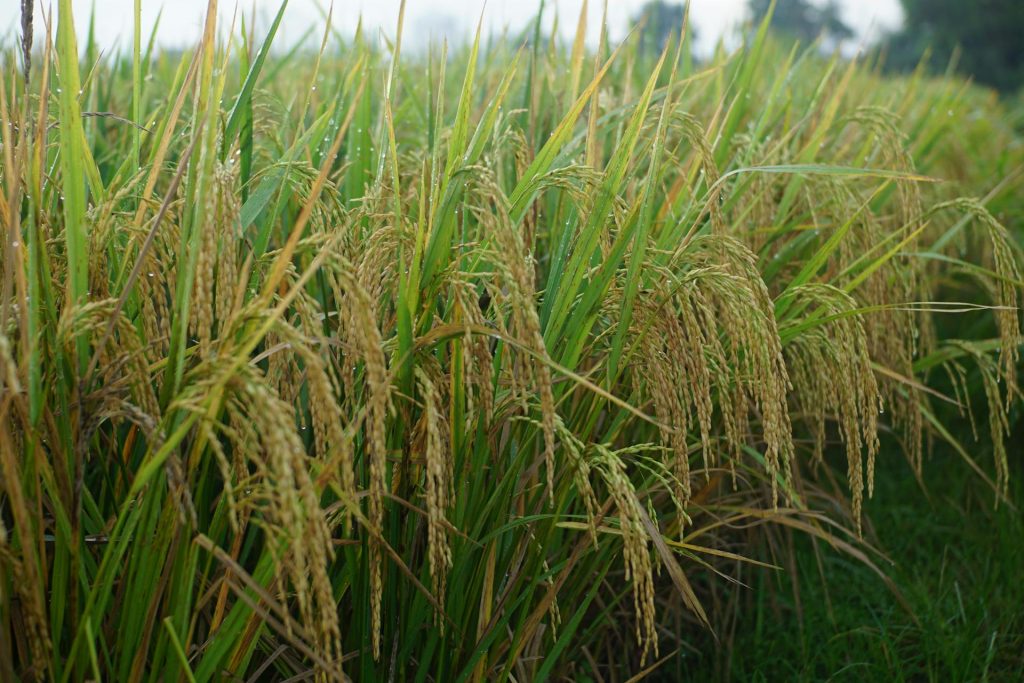Cereal crops like wheat, rice, maize, and millets are vulnerable to fungal, bacterial, and viral diseases, which can reduce yields by 20-50% if not managed properly. This guide covers the most common cereal crop diseases in India, their symptoms, and effective prevention strategies.
1. Wheat Diseases
A. Rusts (Leaf Rust, Stem Rust, Stripe Rust)
Symptoms:
- Yellow/orange pustules on leaves (leaf rust).
- Black streaks on stems (stem rust).
- Yellow stripes (stripe rust).
Prevention & Control:
Use resistant varieties (e.g., HD 2967, DBW 187).
Spray fungicides (Propiconazole @ 0.1%) at first signs.
Avoid excess nitrogen (promotes rust spread).
B. Karnal Bunt
Symptoms:
- Fishy-smelling, black powder in grains.
Prevention:
Seed treatment with Carbendazim (@ 2g/kg seed).
Avoid late sowing in high-humidity regions.
2. Rice Diseases
A. Blast (Leaf & Neck Blast)
Symptoms:
- Diamond-shaped lesions on leaves.
- Blackened neck (neck blast) → grain loss.
Prevention & Control:
Grow resistant varieties (e.g., CR Dhan 801, Swarna Sub-1).
Avoid water stagnation (use AWD irrigation).
Spray Tricyclazole (1g/L) at tillering & flowering.
B. Bacterial Leaf Blight (BLB)
Symptoms:
- Yellow streaks turning into white lesions.
Prevention:
Use certified disease-free seeds.
Spray Streptocycline (500 ppm) + Copper Oxychloride.
3. Maize Diseases
A. Turcicum Leaf Blight (TLB)
Symptoms:
- Long, grayish lesions on leaves.
Prevention:
Use hybrids with TLB resistance (e.g., Pioneer 30V92).
Spray Mancozeb (2g/L) at disease onset.
B. Downy Mildew
Symptoms:
- White fungal growth on leaves.
- Stunted growth.
Prevention:
Seed treatment with Metalaxyl (@ 6g/kg seed).
Avoid waterlogging.
4. Millet Diseases (Bajra, Jowar, Ragi)
A. Downy Mildew (Bajra)
Symptoms:
- Yellow streaks, white fungal growth.
Prevention:
Use resistant varieties (e.g., HHB 67, RHB 177).
Spray Ridomil Gold (0.2%).
B. Grain Smut (Jowar)
Symptoms:
- Black powdery spores in grain heads.
Prevention:
Hot water seed treatment (50°C for 10 min).
Avoid continuous jowar cultivation.
5. General Disease Prevention Strategies
A. Cultural Practices
Crop rotation (break disease cycles).
Field sanitation (remove infected plant debris).
Optimum spacing (improves air circulation).
B. Chemical Control
Seed treatment (Thiram/Carbendazim @ 2g/kg seed).
Foliar fungicides (Azoxystrobin, Hexaconazole).
C. Biological Control
Trichoderma viride (soil application @ 5kg/ha).
Neem oil spray (5%) for fungal prevention.
D. Resistant Varieties
| Crop | Disease | Resistant Variety |
|---|---|---|
| Wheat | Rust | HD 2967, DBW 187 |
| Rice | Blast | CR Dhan 801, Swarna Sub-1 |
| Maize | TLB | Pioneer 30V92, NK 6240 |
| Bajra | Downy Mildew | HHB 67, RHB 177 |
6. Government Support for Disease Management
- Subsidized fungicides under Rashtriya Krishi Vikas Yojana (RKVY).
- Free soil testing at Krishi Vigyan Kendras (KVKs).
FAQs
Q: Which is the most dangerous wheat disease?
A: Stem rust (can wipe out entire fields).
Q: Can organic farming prevent crop diseases?
A: Yes! Biofertilizers & neem-based sprays reduce fungal/bacterial risks.
Q: How to identify viral diseases in cereals?
A: Yellow mosaic patterns, stunted growth (no cure; remove infected plants).






